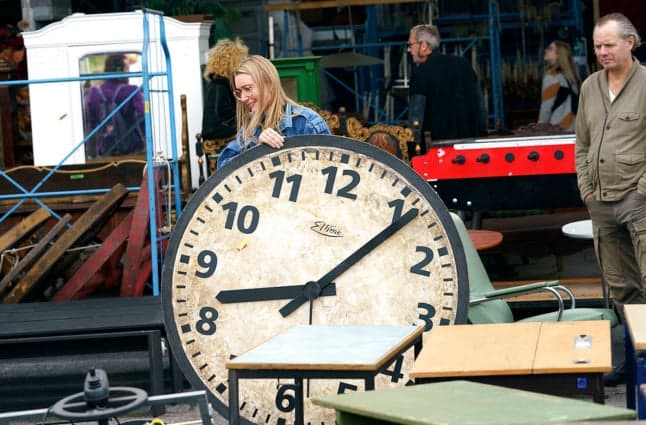Clocks go back in Denmark despite EU deal on scrapping hour change

The clocks go back this weekend in Denmark, in what was originally foreseen as the last changing of the hour - but EU-wide disputes mean the annual ritual may continue for some time yet.
Denmark moves to winter time this weekend, with 3am on Sunday, October 31st, marking the moment when clocks go back by one hour, giving most people an extra lie-in on Sunday morning.
In place in the EU since 1976, the twice-yearly changing of the clocks has been controversial for some time and in 2019 lawmakers in the European Parliament voted by a large majority – 410 MEPs against 192 – in favour of stopping the changing of the hour from 2021.
However, following the vote, the Parliament specified that each EU member state would decide whether they would keep summer time or winter time.
The 2021 deadline to scrap, however, was derailed by Covid which disrupted the normal parliamentary timetables in most countries.
But as normal political life resumes a further problem has emerged – although EU countries agree on scrapping the hour change, they cannot agree on whether to stick with summer or winter time.
Having many different EU countries in different time zones would create all sorts of practical problems for business and trade, not to mention the substantial number of cross-border workers who live in one EU country and work in another.
French MEP Karima Delli told French TV channel BFM: “The ball is in the court of the Member States.
“We agree on the time change, but what really blocks is: do we stay on summer time or winter time? This is a real problem because the Member States cannot agree.”
She underlined “indirect problems on connectivity, on transport… All this must be organised”, adding: “If I am French and I work in Germany, I am not going to change my watch in the morning and in the evening. We really need harmonisation.”
With clocks slipping down the political agenda in favour of more urgent problems, it seems unlikely that this weekend will be the last time the clocks change in Denmark.
READ ALSO: Permanent summer time in Denmark? EU parliament votes to end changing of clocks
Comments
See Also
Denmark moves to winter time this weekend, with 3am on Sunday, October 31st, marking the moment when clocks go back by one hour, giving most people an extra lie-in on Sunday morning.
In place in the EU since 1976, the twice-yearly changing of the clocks has been controversial for some time and in 2019 lawmakers in the European Parliament voted by a large majority – 410 MEPs against 192 – in favour of stopping the changing of the hour from 2021.
However, following the vote, the Parliament specified that each EU member state would decide whether they would keep summer time or winter time.
The 2021 deadline to scrap, however, was derailed by Covid which disrupted the normal parliamentary timetables in most countries.
But as normal political life resumes a further problem has emerged – although EU countries agree on scrapping the hour change, they cannot agree on whether to stick with summer or winter time.
Having many different EU countries in different time zones would create all sorts of practical problems for business and trade, not to mention the substantial number of cross-border workers who live in one EU country and work in another.
French MEP Karima Delli told French TV channel BFM: “The ball is in the court of the Member States.
“We agree on the time change, but what really blocks is: do we stay on summer time or winter time? This is a real problem because the Member States cannot agree.”
She underlined “indirect problems on connectivity, on transport… All this must be organised”, adding: “If I am French and I work in Germany, I am not going to change my watch in the morning and in the evening. We really need harmonisation.”
With clocks slipping down the political agenda in favour of more urgent problems, it seems unlikely that this weekend will be the last time the clocks change in Denmark.
READ ALSO: Permanent summer time in Denmark? EU parliament votes to end changing of clocks
Join the conversation in our comments section below. Share your own views and experience and if you have a question or suggestion for our journalists then email us at [email protected].
Please keep comments civil, constructive and on topic – and make sure to read our terms of use before getting involved.
Please log in here to leave a comment.